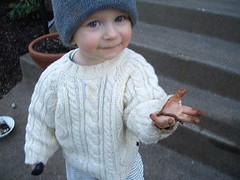The destructiveness of an act of vice is never isolated. A moral transgression drags down everyone and everything it touches, in many diffirent ways -- and it is especially corrosive to those who do not or cannot consciously reject and repudiate it.
An act of dishonesty such as a white lie, for example, is often met with toleration in our culture. There is indeed a strong temptation among most people to excuse, ignore, and endure the "little failings" of their friends. One motivation for this can be the computation that the white lie is a very small blemish on an otherwise moral character -- and this
is a partially rational analysis. Another motivation computes (often subconsciously) that the vice is very small compared to how greatly one
likes the friend. This is obviously unjust, but is also very common.
If a white lie is endured, if it is not identified as wrong and bad (with appropriate scope and response), then one becomes full victim to it, because to accept or excuse a lie is to treat a falsity as more important than the truth, and a liar as more important than oneself. In this way, one person's dishonesty may cause another's -- IF the other fails to accept the responsibility of judgement.
The situation is complicated by the fact that ethics is an unknown
science today: moral evaluation is thought to be either baselessly religious or baselessly subjective, and there is very little room in between. (Even the simplest of moral ideas, that murder is wrong, is often controversial for this reason: is a suicide bomber who decimates a wedding a murderer ... or is he a hero of Islam? or a faultless pawn of geopolitical forces?) This is in fact why the phrase "white lie" exists, to conceptually demarcate a whole class of dishonesty which is supposed to be morally neutral or even good. Given this, well-intentioned people today will say they like a friend's new dress -- or new romantic partner -- when they actually feel the opposite way. Such dishonesty is still dishonest, though the culpability is modified by an analysis of the person's motivation.
It is the Age of Skepticism which makes the failure to morally judge possible on such a grand scale. The daily toleration for millions of acts of vice across the planet would not be possible without the worm of nihilism at the heart of modern culture.
The proper response to dishonesty is always to identify it, fully and honestly. The proper course of action is then contextual -- from a raised eyebrow, to a full public denunciation. There are too many factors to name here. But the principle stays the same in all cases, because the root fact is always this: an act of vice is destructive, so to "go along" with one is to go along with an act of destruction.
